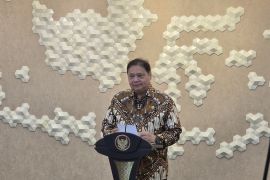"Send a note of protest to New Zealand via its ambassador here, stating that as a neighbor, what they had done was improper," Rais noted here, Monday.
New Zealand should have followed a good neighborhood policy, he noted.
Each country should be able to enjoy sovereignty of information, which must not be spied upon by others, he pointed out.
"If the spying occurred, it means that it is part of a cyber war," he added.
On March 5, Reuters reported that New Zealand has been spying electronically on its Pacific Island neighbors and Indonesia and sharing the intelligence with its international allies.
According to documents dating back to 2009 that were released by a former United States National Security Authority (NSA) contractor Edward Snowden, New Zealands electronic spy agency had intercepted emails, mobile and fixed line phone calls, social media messages, and other communications in small Pacific states including Fiji, Samoa, Solomon Islands, and French Polynesia.
The material gathered by the Government Communications Security Bureau (GCSB) was shared with the United States NSA, which along with the agencies in Australia, Britain, and Canada, constitute the "Five Eyes" surveillance network.
The documents also revealed that a New Zealand GCSB officer had worked with the Australian Signals Directorate in spying on the Indonesian cellphone company, Telkomsel.
A diplomatic rift between Indonesia and Australia occurred in 2013, following revelations of illegal wiretapping conducted by Australian surveillance agencies targeting the then President Susilo Bambang Yudhoyono and his inner circle.
Indonesia strongly protested the spying incident and recalled its ambassador to Australia Nadjib Riphat Kesoema in November 2013. However, six months later, the ambassador returned to Canberra, indicating that the bilateral relations between the two neighbors had normalized.(*)
Editor: Heru Purwanto
Copyright © ANTARA 2015











